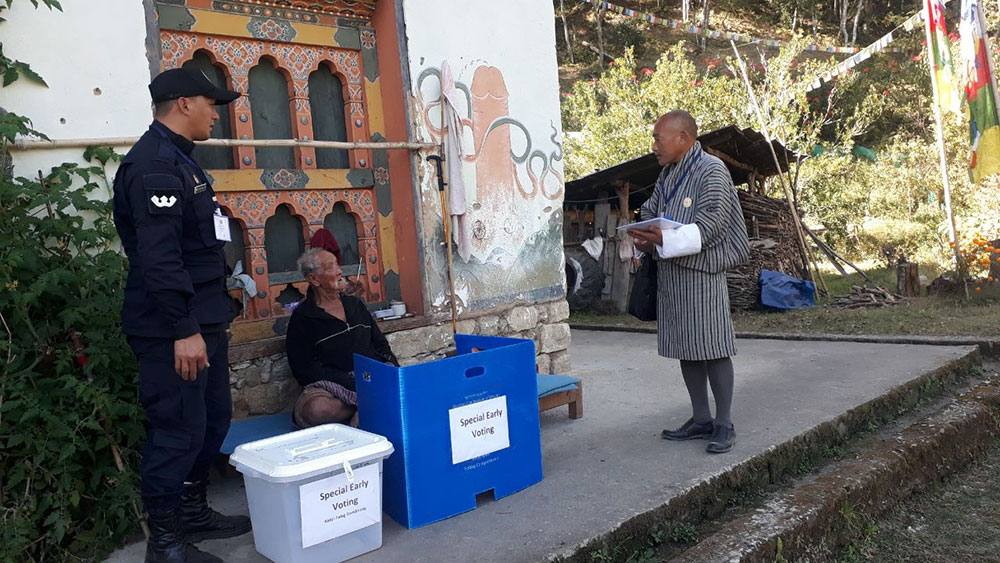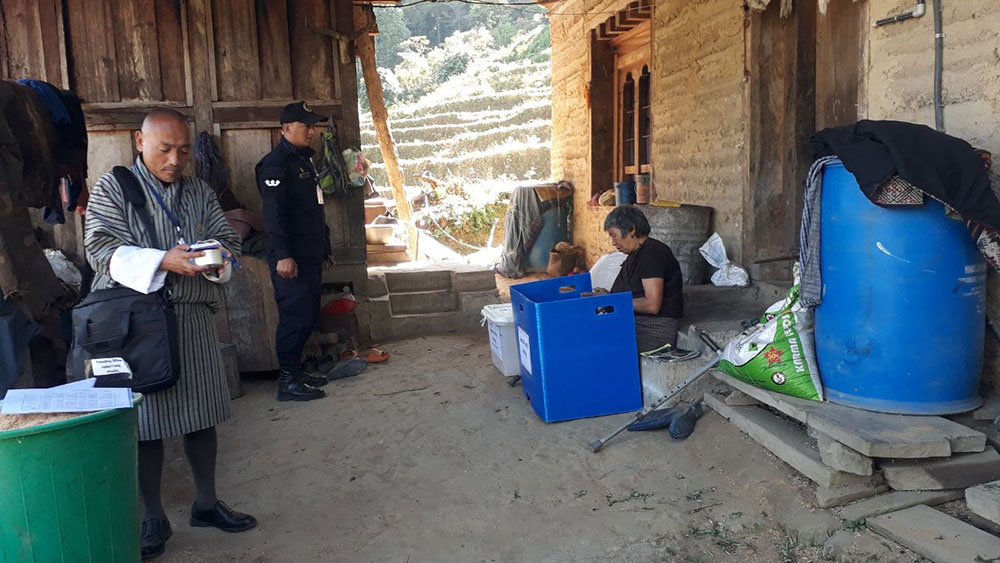Chencho Dema
Punakha – With the poll day for primary elections looming on the horizon, the Election Commission of Bhutan (ECB) is orchestrating a determined effort to amplify the voices of individuals with disabilities.
In a commendable initiative, election officials have embarked on a journey to the heart of Punakha’s constituencies, Kabji-Talo and Lingmukha-Toedwang, ensuring that 36 registered disabled voters exercise their right to vote.
Among the voters, 15 grapple with paralysis, seven with visual impairment, nine are bedridden, and one faces physical challenges, in addition to four elderly citizens.

Polling officials go door to door collecting ballots from voters in Punakha
As Bhutan prepares for the fourth National Assembly elections, the ECB is committed to levelling the electoral playing field. A specialised early voting service has been introduced, catering to the unique needs of people with disabilities (PWDs) and those unable to reach polling stations on poll day.
The inaugural phase of early voting, spanning three days until November 25, is already underway. In Kabji-Talo, election officials commenced this crucial service from Goenshari, reaching out to a lone visually impaired male voter.
Notably, there are 20 PWDs in Kabji-Talo, with Talo boasting the highest count at six, closely followed by Baarp and Guma gewogs with four each.
Simultaneously, the Lingmukha-Toedwang constituency saw the presence of four PWDs during the commencement of early voting. Lingmukha, Dzomi, and Shelnga-Bjemi gewogs lead in the number of PWDs, each with four individuals.
As Kabisa-Talo constituency braces for the elections, it houses 13,731 registered voters, including 2,350 in-country postal voters, and 70 overseas. Lingmukha-Toedwang, on the other hand, has 7,807 registered voters, with 1,735 in-country postal voters and 29 from overseas.
The commitment to inclusivity extends beyond the numbers, reflecting in the ECB’s provision of 17 polling stations for Kabji-Talo and 10 for Lingmukha-Toedwang.
The dzongkhag itself comprises 33,049 residents, all of whom are integral to the democratic process.
Kabisa-Talo constituency witnesses a dynamic lineup of candidates, including Tshering Dorji (Bhutan Tendrel Party), Tshencho Wangdi (Druk Nyamrup Tshogpa), Sangay Phurba (Druk Phuensum Tshogpa), Kinzang Thinley (Druk Thuendrel Tshogpa), and Namgyal Dorji (People’s Democratic Party). Meanwhile, Lingmukha-Toedwang presents a diverse array of contenders, featuring Gyambo Sithey (PhD) of BTP, Dr Tandi Dorji of DNT, Tenzin Tshewang of DPT, Sonam Wangyel Wang (PhD) of DTT, and Namgay Wangchuk of PDP.
As the country approaches this pivotal moment in its democratic journey, the dedication to ensuring every voice is heard, especially those with unique challenges, stands as a testament to the nation’s commitment to inclusivity and the democratic ideals it upholds.


